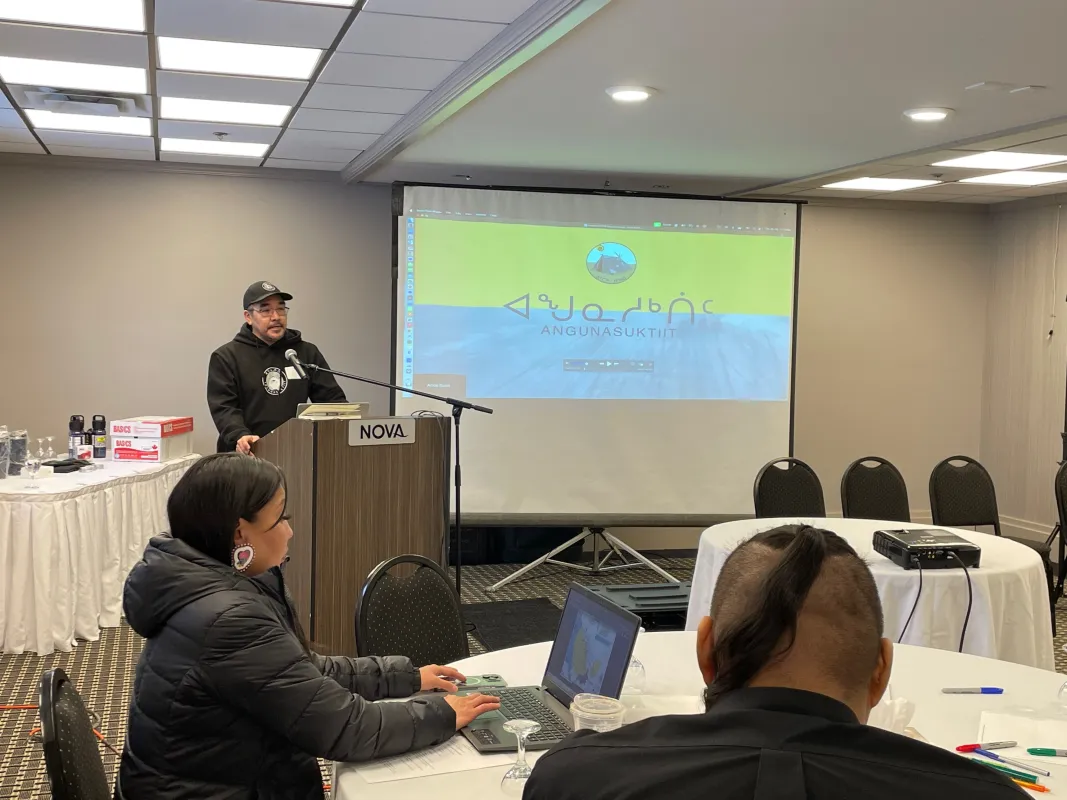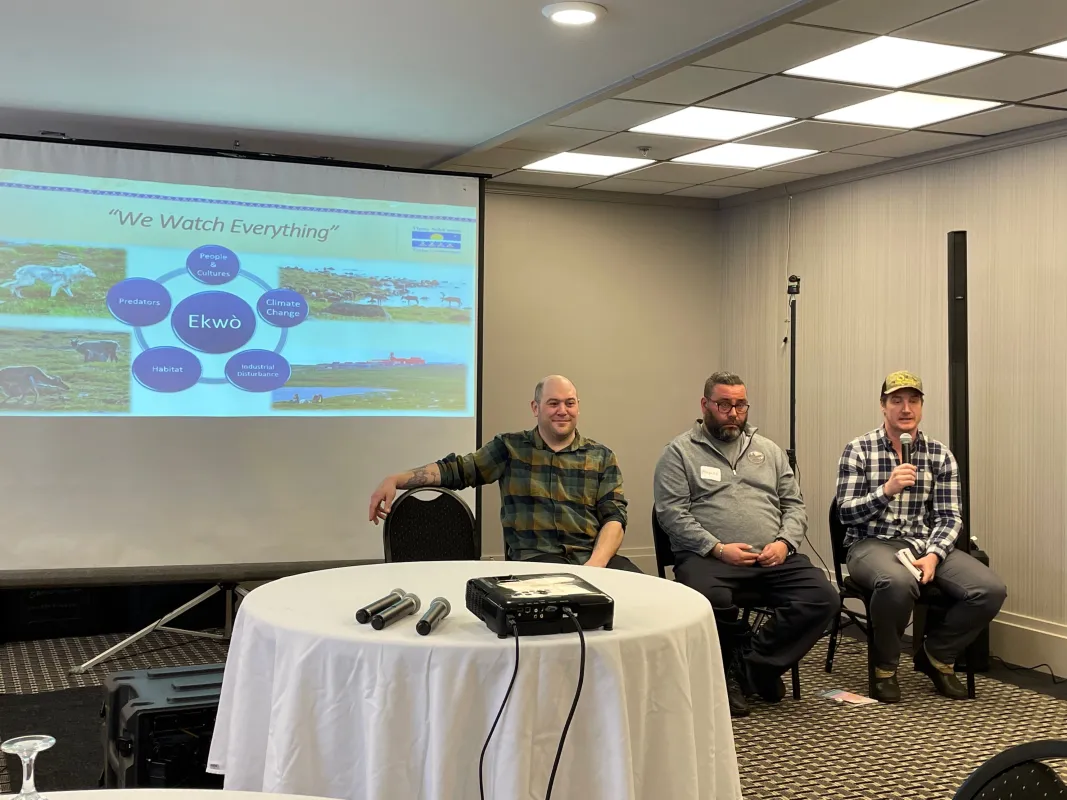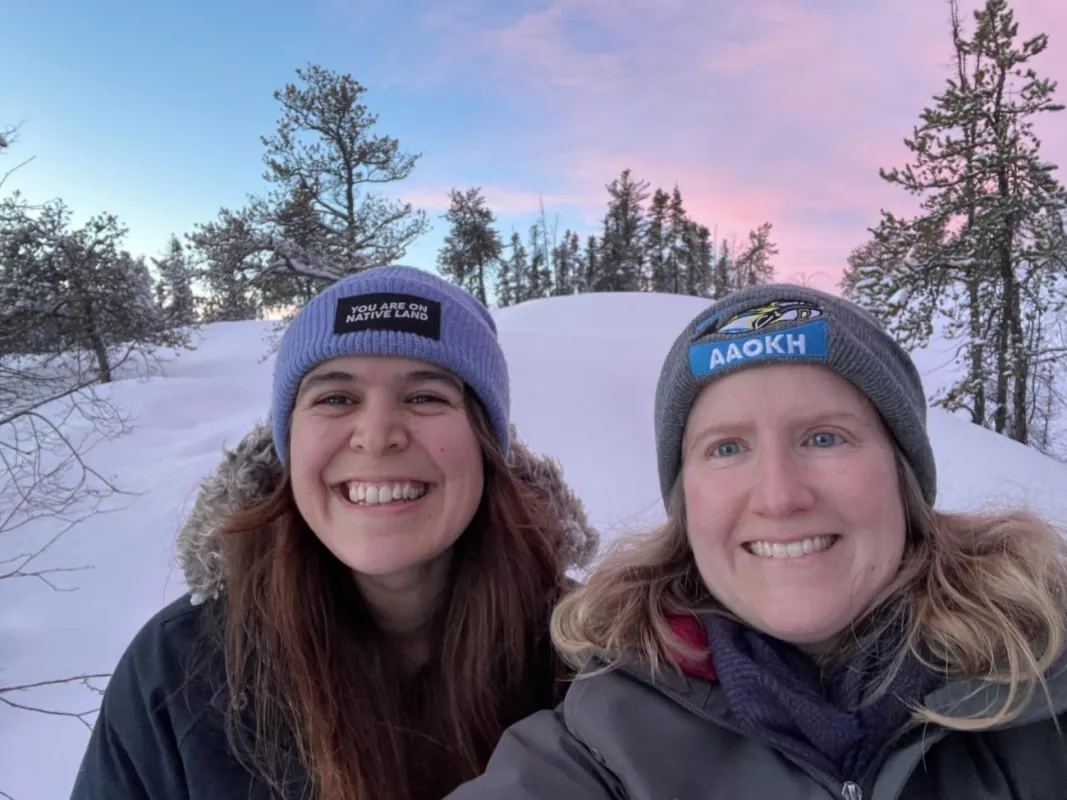On January 30 and 31, 2024, the Exchange for Local Observations and Knowledge of the Arctic (ELOKA) worked with the Northern Indigenous Stewardship Circle and the Geomatics and Cartographic Research Centre (GCRC) of Carleton University to co-host the Northern Guardians Data Roundtable, with support from the MakeWay Foundation. This meeting was held on the traditional territory of the Yellowknives Dene on Chief Drygeese Territory, as part of Treaty 8, in Yellowknife, Northwest Territories. Canada's Indigenous Guardians programs support a network of over 85 First Nations, Inuit, and Metis-led programs across the country. At the roundtable, guardians and leads from similar land-based programs met to discuss data they collected during harvesting and land stewardship programs, usage of these data, and program needs relating to data management.
Data collection and uses
While the specific focus and activities of Indigenous Guardians varies among programs, many programs collect data and observations as part of environmental monitoring and land management. Through presentations and group discussions, we heard from programs about data collection, management, and support utilizing tools and applications. Data collected includes and is not limited to:
- Harvesting data such as species harvested and timing and locations of harvest, health and condition of animals
- Environmental data such as sea ice thickness and salinity, water quality, wind and weather observations, permafrost depth, and erosion of coastal regions and riverbeds
- Species monitoring: monitoring invasive and native species, tracking migration patterns, and monitoring species health
Many programs share these data to inform a range of activities including resource management, land use planning, travel safety, and search and rescue.
The theme of Indigenous data sovereignty emerged during the meeting. Indigenous data sovereignty reflects the inherent right of Indigenous nations and peoples to control how Indigenous data is collected, used, and shared. Noor Johnson (ELOKA) and Peter Pulsifer (GCRC) prepared a presentation about data management systems and how they related to governance and data sovereignty. Johnson shared technical ways to implement data sovereignty, such as creating data sharing agreements or memorandum of understanding (MOU). This presentation prompted a discussion about policy and data sovereignty, and ways that programs can adopt data sovereignty policies and protocols.
On the final day of the meeting, participants discussed action items that can support data management, data sovereignty practices, and more collaboration between programs. Actions include:
- More gatherings, including exchanges between programs, and gatherings based on different types of monitoring work programs
- More trainings on topics related to governance, rights, and data sovereignty
- Capacity sharing and support to secure long-term, sustainable funding
Overall, the meeting created an opportunity for Guardians and similar programs to share about their programs, learn from each other, and come up with solutions to current data issues. This meeting set the foundation for future meetings between Guardians and monitoring programs and highlighted several areas of interest for future discussion, including data sovereignty and data management training. ELOKA team members are excited to be part of these discussions, and are looking forward to next steps.



